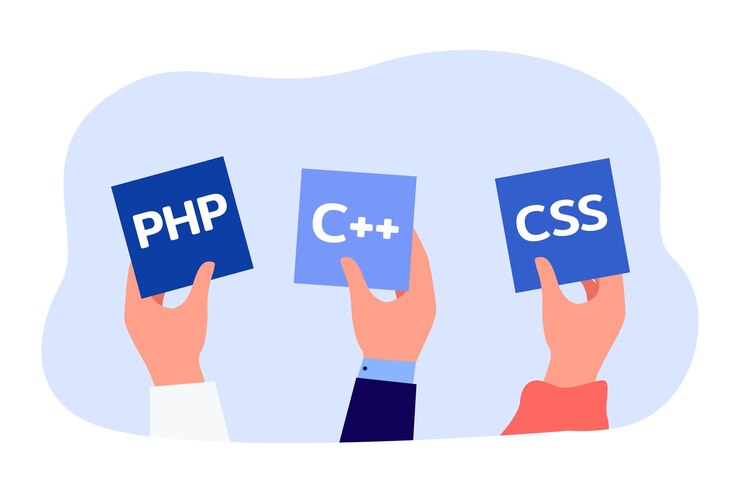An Introduction to PHP Enum Extends: What You Need To Know

An Introduction to PHP Enum Extends: What You Need To Know
The PHP world recently embraced a significant new feature with the introduction of enumerations, or enums, in PHP 8.1. This addition provides developers with a native way to define a list of possible values that a variable can hold, thereby increasing type safety and enhancing code readability. Enumerations have long been featured in other programming languages, and their incarnation in PHP has been met with excitement. With PHP enum extends, the possibilities of how enumerations can be used are expanding even further. In this article, we’ll explore what PHP enum extends are and how they can be utilized to improve your coding practices.
Which Use Case Best Suits Java: A Comprehensive Guide
PHP Enum Extends in Practice: Real-World Use Cases and Examples
The practical benefits of php enum extends are evident in various scenarios. For example, in an order management system, extended enums can manage different order statuses, centralizing the logic and making workflows easier to handle. This approach simplifies control structures and reduces repetitive code.
In e-commerce platforms, extended enums can handle various payment methods, encapsulating unique validation and processing rules for each. This enhances security and minimizes maintenance errors. These real-world applications demonstrate how php enum extends can create more robust and maintainable PHP solutions.
The Anatomy of PHP Enumerations: How Extends Elevates Their Power
PHP enumerations provide a fixed set of values for domain-specific logic and controlled outcomes. Without enums, developers often used class constants or configuration arrays, which lack self-validating nature. However, with the ability to extend enums, PHP advances into more advanced programming paradigms. Extended enums can contain methods that operate on the enum itself, such as formatting outputs, converting between types, or complex decision-making processes.
This enum becomes more like fully-fledged objects, allowing for better object-oriented design. Extended enums can implement interfaces, ensuring common operations across various enum types, facilitating dependable and predictable code interactions in large and modular applications. Through interfaces, enums can become part of broader system-wide contracts, decoupling the application’s components.
Implementing Inheritance in Enums: A Guide for PHP Developers
In object-oriented programming (OOP), inheritance allows a class to inherit properties and methods from another class. In PHP, enum extends allow enums to inherit methods from abstract enums or interfaces, fostering OOP principles within enum constructs. Developers must understand the base and derived relationships when working with enums that extend, as the base enum serves as a template and derived enums build upon it.
This divergence from standard inheritance means enums cannot be subclassed or inherit from other classes. Proper implementation of PHP enum extends can result in cleaner and more manageable enums, serving as key components in an application’s architecture.
Understanding PHP Enum Extends and Its Impact on Modern PHP Development
PHP enum extends offer additional flexibility, allowing developers to add methods and implement interfaces, enhancing object-oriented programming within the PHP language. This flexibility is particularly useful for functionality beyond simple value checking, allowing developers to define behavior directly related to enum cases. This allows for tailored use cases in complex applications.
PHP enum extends bring PHP up to par with other languages with rich enum types, such as Java and TypeScript, leading to more robust type-safety features, cleaner code, and more sophisticated design patterns. PHP enums with extensions support maintainability by making the codebase more self-documenting, consolidating related concepts into one cohesive unit, making it easier for new developers to understand code and reduces the chances of misusing enum values.
Maximizing Code Efficiency with PHP Enum Extends: Best Practices and Techniques
To effectively use extended enums in PHP, it is crucial to follow best practices. Start by only extending enums when necessary, as overcomplicating them can lead to bloated code and hinder the simplicity of enums. Defining methods in extended enums should be relevant to the domain of the enum values, ensuring they serve a purpose and do not confuse the intended semantics. This approach maintains clean, focused code.
Judicious use of interfaces is another key practice. Abstracting methods from multiple enums into an interface provides a common structure and expectation across enums, allowing generic code writing and reducing duplication. Developers should rigorously test extended enums, ensuring each method behaves as expected and integrating smoothly with the rest of the application. Incorporating unit tests and asserting correct behavior of enums’ methods fortifies the codebase against future changes.
Overall, PHP enum extends serve as a testament to the language’s evolution to accommodate modern programming principles. They empower developers to write code that is not only expressive and type-safe but also efficient and adaptable. As PHP continues to advance, adopting features like extended enums could signify a significant step towards more sophisticated and higher-quality PHP applications.


